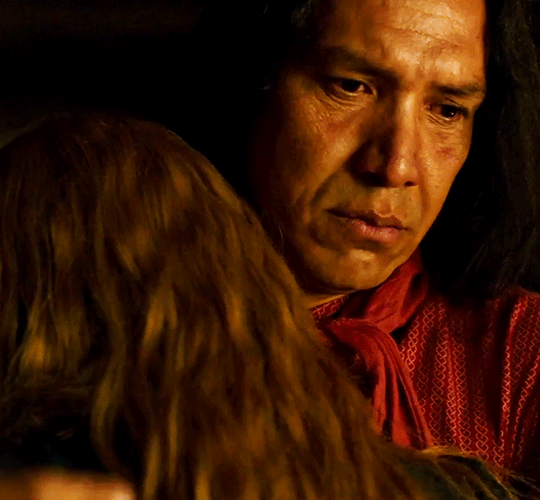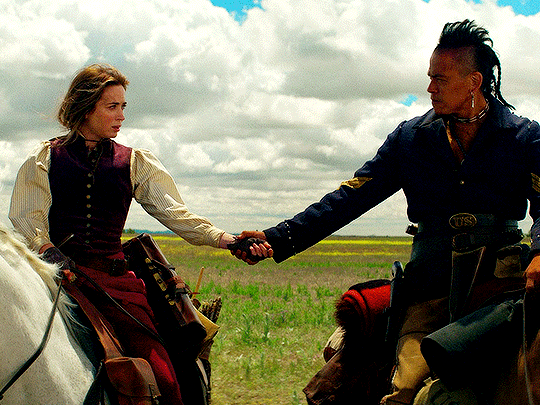#Weldone
Explore tagged Tumblr posts
Text
youtube
#نومبر24_یوم_انقلاب#احتجاج_سے_انقلاب_تک#گنڈاپور_ہمارا_نہیں#عمرا��_کی_کال_وڑ_گئی#کمپرومائزڈ_احتجاج#FaisalAkram#Faizabad#Rawalpindi#Multan#Punjab#Islamabad#Zimbabwe#ETH#Liverpool#PremierLeague#Arsenal#MohsinNaqvi#WhatsApp#NawazSharif#Bullish#Pashtuns#Rizwan#Firestick#Discovered#XinPakistan#Weldone#Gandapur#Correction#Jaiswal#Perfectly
0 notes
Text
Hey Hope you are all good.
1 note
·
View note
Text

#movies#polls#them!#them#them! movie#them! 1954#50s movies#old hollywood#gordon douglas#james whitmore#james arness#joan weldon#edmund gwenn#requested#have you seen this movie poll
2K notes
·
View notes
Text

Six reasons why SFDs (Sh!tty First Drafts) are a good thing: 1. I can’t revise what I didn’t write. 2. Rather than tumble a few half-cocked ideas in my brain like shoes in a dryer, I’m better than off removing them. 3. Like making a list, I no longer stress about remembering everything. 4. The pantser in me figures out the real story (often not what I’d expected) and I highlight that. 5. The plotter in me revises the outline. 6. Better dialogue, dialogue, dialogue.
– Rob Weldon (@/blood.wren)
#fiction#fiction writing#writeblr#writing tips#writing advice#writing motivation#rob weldon#threads#kcawf original#image description in alt text
150 notes
·
View notes
Text








"You just said you can't choose destiny. You chose me."
"One look at you and I had no choice at all."
#the trope is one or both die#interracial Indigenous American ships follow this trope and it KILLS ME#uncas x alice monroe#catherine weldon x sitting bull#cornelia locke x eli whipp#abish x red feather#the last of the mohicans#woman walks ahead#the english#American primeval#ships#otp#interracial relationship#soulmates
164 notes
·
View notes
Text

One Day (2024) Episode 5 / Episode 14
#idk i see the last frame and i smile it's just so sweet#the contrast#one day#one day netflix#one day 2024#he acted the fuck out of that train station scene jfc... like i can actually relate to that feeling#dexter mayhew#leo woodall#tim mcinnerny#adam loxley#jonny weldon#eleanor tomlinson#amber grappy
419 notes
·
View notes
Text

“[Their height difference] wouldn’t bother Ted. It doesn’t bother me”

422 notes
·
View notes
Text
Robert Tracinski for The UnPopulist:
The Covid-19 pandemic has produced a startling paradox. In response to the outbreak of a deadly disease, scientists developed an effective vaccine in record time. It is estimated to have saved three million lives in the U.S.—many more than the 1.2 million lives Covid claimed—and tens of millions of lives globally. Yet the immediate result is that resistance to vaccines increased. Those who oppose vaccines progressed rapidly from the fringe to the mainstream, and now, President Trump has appointed prominent vaccine skeptics to run the nation’s top health agencies: Robert F. Kennedy Jr. at Health and Human Services and Dave Weldon at the Centers for Disease Control and Prevention. How did we arrive at such a perverse result? Why are people turning against a lifesaving technology precisely at the moment when it has demonstrated its value?
A Pandemic Interrupted
The effectiveness of the vaccine is well supported by facts and evidence. For instance, a 2022 study in the New England Journal of Medicine (see a summary here) found that Covid vaccines were “52.2% effective at preventing infection and 66.8% effective at preventing hospitalization.” In other words, if you were vaccinated, you were half as likely to get the disease, and if you did get it, you were a third as likely to suffer a serious case. The effectiveness of the vaccine fades over time—but then again, so does the natural immunity conferred by getting full-blown Covid.
You can see the result in this chart of Covid death rates for the vaccinated versus the unvaccinated. The differential has narrowed in recent years as the pandemic recedes and far fewer people are getting Covid in the first place. But notice the giant spike in January of 2022, when the unvaccinated were dying at a rate 10 times as high as the vaccinated. That is how we know this was a successful vaccine, and that’s when a lot of lives were saved. A flurry of bad arguments has attempted to bury these facts in the public mind. Consider the complaint that the Covid vaccines are not “real” vaccines because they don’t provide “sterilizing immunity”—that is, they don’t completely prevent transmission of the disease. But this is based on ignorance about how “real” vaccines work. For example, Jonas Salk’s famous polio vaccine didn’t provide sterilizing immunity, either. Yet it kept the polio virus from attacking the nervous system, preventing paralysis and death.
But this issue is a red herring, because other vaccines such as the HPV vaccine do provide sterilizing immunity—and more than that, a 2020 study showed that the HPV vaccine’s adoption resulted in a 90% decrease in cervical cancer. Yet this vaccine was also targeted by a misinformation campaign. It briefly became an issue in the 2012 Republican primaries, when anti-vaccine talking points were promoted by Sarah Palin and others in the populist faction of the party that has since become dominant. Other objections, such as complaints about inconsistent or inaccurate early CDC recommendations about, for example, masking, are also red herrings—because the people who tout these arguments then tend to credulously accept the assertions of vaccine skeptics who have been wrong far, far more often than the experts. The success of the Covid vaccine can be seen in the degree to which we no longer worry about the disease. That in itself is not too remarkable. All pandemics eventually fade. What was really different this time is that the Covid vaccine cut the progress of the disease short. Before Covid, the fastest time for developing and deploying a vaccine was four years. At that pace, we would just have gotten our first Covid shots in 2024. But the new vaccines were deployed in less than a year, before the end of 2020.
[...]
Industrial Amnesia
This forgotten history suggests one of the main drivers of the current vaccine paradox. People turned against vaccines after Covid simply because the pandemic required them to think about vaccines, which they haven’t done for a long time. And because they haven’t done it for such a long time, they have forgotten—or never learned in the first place—why vaccines existed, what problem they solved. You may have heard the famous story about church bells ringing in 1953 when the successful test of the polio vaccine was announced. This is because most people had actually witnessed the horrible effects of the disease—it peaked in the U.S. in 1952—and many still remembered an era when children routinely died from infectious diseases.
This UnPopulist column nails it on why the rise of anti-vaxxer extremism has spread.
#Vaccines#Coronavirus Vaccines#Anti Vaxxer Extremism#Anti Vaxxers#Disinformation#Public Health#Natural Immunity#Dave Weldon#Robert F. Kennedy Jr.#Donald Trump#Trump Administration II
61 notes
·
View notes
Text
youtube
#نومبر24_یوم_انقلاب#احتجاج_سے_انقلاب_تک#گنڈاپور_ہمارا_نہیں#عمران_کی_کال_وڑ_گئی#کمپرومائزڈ_احتجاج#FaisalAkram#Faizabad#Rawalpindi#Multan#Punjab#Islamabad#Zimbabwe#ETH#Liverpool#PremierLeague#Arsenal#MohsinNaqvi#WhatsApp#NawazSharif#Bullish#Pashtuns#Rizwan#Firestick#Discovered#XinPakistan#Weldone#Gandapur#Correction#Jaiswal#Perfectly
0 notes
Text

James Weldon Johnson (June 17, 1871 – June 26, 1938) was an American writer and civil rights activist. He was married to civil rights activist Grace Nail Johnson. Johnson was a leader of the National Association for the Advancement of Colored People (NAACP), where he started working in 1917. In 1920, he was chosen as executive secretary of the organization, effectively the operating officer.He served in that position from 1920 to 1930. Johnson established his reputation as a writer, and was known during the Harlem Renaissance for his poems, novel and anthologies collecting both poems and spirituals of Black culture. He wrote the lyrics for "Lift Every Voice and Sing", which later became known as the Black National Anthem, the music being written by his younger brother, composer J. Rosamond Johnson.
#melanin#black is beautiful#black is better#beautiful#love yours#black king#black kings#black history month#James Weldon Johnson
54 notes
·
View notes
Text
hugh and his silly tie

#hugh weldon#alfred molina#pete's meteor#otto octavius#dr hugh weldon#dr otto octavius#molina verse#my art
158 notes
·
View notes
Text

Casey Weldon
High sobriety. 2025
33 notes
·
View notes
Text

GAMBIT & ROGUE - X-MEN by Matthew Weldon
82 notes
·
View notes
Text







Francesco Petit as Carter Moretti in Gormiti: The New Era
75 notes
·
View notes
Text

Beams all of you with Timeskip Lisia (aka Lisia by the time of S/V)
#pokemon#my art#au#the hybridverse#pokemon omega ruby#pokemon alpha sapphire#lisia pokemon#coordinator lisia#Lisia Weldon
165 notes
·
View notes
Text

"Suckers" by Casey Weldon
#Casey Weldon#pop surrealism#contemporary#american artist#low brow art#lowbrow#art#paintings#acrylic paint#octopus
66 notes
·
View notes